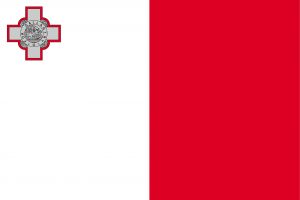Language/Maltese/Vocabulary/Count-to-10
Hi Maltese learners! 😊
In this lesson, we will focus on one of the most essential skills in any language: counting. No matter where you are in the world, counting is an essential skill in any society. Maltese counting is unique in its own way, so let's get started!
Finish this lesson and explore these related pages: Parts of the Body, Essential Phrases in Maltese, Colors & Dinner Table.
Basic Concepts[edit | edit source]
Counting in Maltese is not too difficult, as it follows a very similar format to the English language. The numbers from one to ten are actually the same, albeit with a bit of a Maltese twist to their pronunciation. As we progress and cover higher numbers, changes to the pronunciation and construction of Maltese numbers will become apparent.
Counting from 1 - 10[edit | edit source]
Here are the numbers one to ten in Maltese:
| Maltese | Pronunciation | English |
|---|---|---|
| wieħed | [wie-hed] | One |
| tnejn | [tnayn] | Two |
| tlieta | [Tl-ee-ta] | Three |
| erbgħa | [er-ba-gha] | Four |
| ħamsa | [h-ahm-sa] | Five |
| sitta | [sut-ta] | Six |
| sebgħa | [se-baa-gha] | Seven |
| tmienja | [T-mien-ya] | Eight |
| disgħa | [dis-aa-gha] | Nine |
| għaxra | [aa-shra] | Ten |
An important thing to note in Maltese counting is that the pronunciations will change depending on the gender of the noun which comes after it. This is an important concept to learn and understand, as we will be expanding our vocabulary and use of numbers later on.
Counting from 11 - 20[edit | edit source]
Now that we have covered the numbers one to ten, we can move on to the numbers from 11-20. While these numbers may seem similar to their English counterparts, they have some slight changes. As we progress, we introduce usage depending on gender.
| Maltese | Pronunciation | English |
|---|---|---|
| għaxra u ħdax | [aa-shra oo h-dash] | Eleven |
| għaxra u tnax | [aa-shra oo t-nash] | Twelve |
| għaxra u tliet | [aa-shra oo tl-ee-t] | Thirteen |
| għaxra u erbgħa | [aa-shra oo er-ba-gha] | Fourteen |
| għaxra u ħamsa | [aa-shra oo h-ahm-sa] | Fifteen |
| għaxra u sitta | [aa-shra oo sut-ta] | Sixteen |
| għaxra u sebgħa | [aa-shra oo se-baa-gha] | Seventeen |
| għaxra u tmienja | [aa-shra oo T-mien-ya] | Eighteen |
| għaxra u disgħa | [aa-shra oo dis-aa-gha] | Nineteen |
| għoxrin | [aaaash-rin] | Twenty |
As you can see, following the numbers from 11 to 20, the pronoun "u" appears. Remember to take note of this as we learn more and more Maltese numbers.
Gender in Maltese Counting[edit | edit source]
Gender is an important concept in Maltese counting, and it will become more apparent as we progress through the lessons. Here, we will cover some basics of gender in Maltese.
In Maltese, there are two articles: il and l. The use of the articles depends on the gender of the word that follows. If the gender of the word following is female, then the article is "il". On the other hand, if the word is male or non-gendered, then the article is "l".
In terms of Maltese counting, gender is indicated by the use of the article "il". Here are some examples of gender in Maltese counting:
- Antiques Shop Owner: Hawn hemm tliet inbid femminili. (Here are three female bottles of wine.)
- Customer: Stajt. Kif mhumiex femminil? (Wait. How are they not female?)
- Antiques Shop Owner: Huma l-bottijiet verdi. (They are the green bottles.)
As we can see in this example, even numbers can be considered female or male, depending on the noun that follows it. This is a very important concept in Maltese.
Dialogue[edit | edit source]
Here is a short dialogue between two people, demonstrating how to use the numbers in context.
- Person 1: Tnejn kafein, jekk jogħġbok. ([Two coffees, please.])
- Person 2: Ħabib, il-kafé għandek. (Sure thing, I have the coffee.)
- Person 1: Grazzi, kemm jiswa? ([Thanks, how much is it?])
- Person 2: Irbaħ u sittin ċenteżmu. (Sixteen cents.)
Use It![edit | edit source]
To improve your Maltese vocabulary, you can visit the Polyglot Club, where you can find native speakers and learn more about the Maltese language. Don't be afraid to use your newfound skills and entertain others with your counting abilities! Furthermore, more Vocabulary can be found in the Vocabulary section.
Sources[edit | edit source]
- Maltese numbers — Of Languages and Numbers
- Learn Maltese with fun vocabulary practice games
- Quantitative approaches to productivity and borrowing in Maltese ...
Other Lessons[edit | edit source]
- Weather
- Languages Lingwi
- Dinner Table
- How to Say Hello and Greetings
- Drinks
- Basic Phrases in Maltese
- Days of the Week
- Animals
- Express Surprise
- Time ħin

